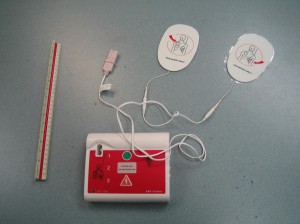
Situated in the bustling commercial district of Los Angeles, our provider Los Angeles CPR is the best you will find that offers both Basic and Advanced Life Support training. CPR training is not only for allied health professionals, even teachers and stay-at-home parents are encouraged to get trained. You don’t know when CPR skills will be useful in saving a member of your family, a close friend, or even a stranger so give us a call or visit our website for more program details.
Signing up is quite easy.
Because we want our prospective students to have easy access to CPR training, we have an online form they can fill out on the Los Angeles CPR website. The form is available throughout the day and can be accomplished at any time. However, we only process applications during business hours so expect a reply during that time only. The same goes to inquiries made through e-mail. If you plan on signing up over a telephone call or in person, be sure to call or visit during business hours as well only.
Our programs are quite varied, covering a wide range of topics.
We have three Basic Life Support courses and two Advanced Life Support courses. We offer one BLS course for laypersons, teaching them the basics of CPR rescue without going into too much detail. The rest of our courses are for healthcare providers and allied health professionals. Basic CPR classes are focused on skill building in their shorter timeframe (average of 4 hours), primarily compressions, rescue breaths, and defibrillation.
The more advanced training courses are for healthcare providers and require a valid Basic Life Support for HCPs training certificate. The focus of ALS training is the inclusion of medical management or medical interventions to manage cardiac arrest. Medical interventions include the use of medications, diagnostic procedures, and equipment such as oxygen support devices. Studies have shown that medical interventions in an organized environment (e.g. emergency room, clinics, etc.) greatly improve the chances of survival of a victim.
- Basic CPR and AED (Heartsaver CPR) – 4 hours, general public
- Basic CPR and AED (Heartsaver C CPR) – 4.5 hours, healthcare providers
- Basic Life Support for healthcare providers – 4.5 hours (re-certification class – 4 hours)
- Advanced Cardiac Life Support (ACLS) – 16 hours, healthcare providers (re-certification class – 5 to 6 hours)
- Pediatric Advanced Life Support (PALS) – 14 hours, healthcare providers (re-certification class – 6 hours and 20 minutes/ 8 hours and 20 minutes)
The validity period of our certificates is two years.
Like all skills, CPR gets rusty if the rescuer does not regularly practice and update himself regarding new techniques and information. This is why we require all our rescuers to get a renewed certificate every two years by signing up for a re-certification class. We only have three re-certification classes, seen from the list above.
Important: We only allow rescuers with valid certificates to sign up for re-certification. If you let your certificate expire, you have to take the training program again.